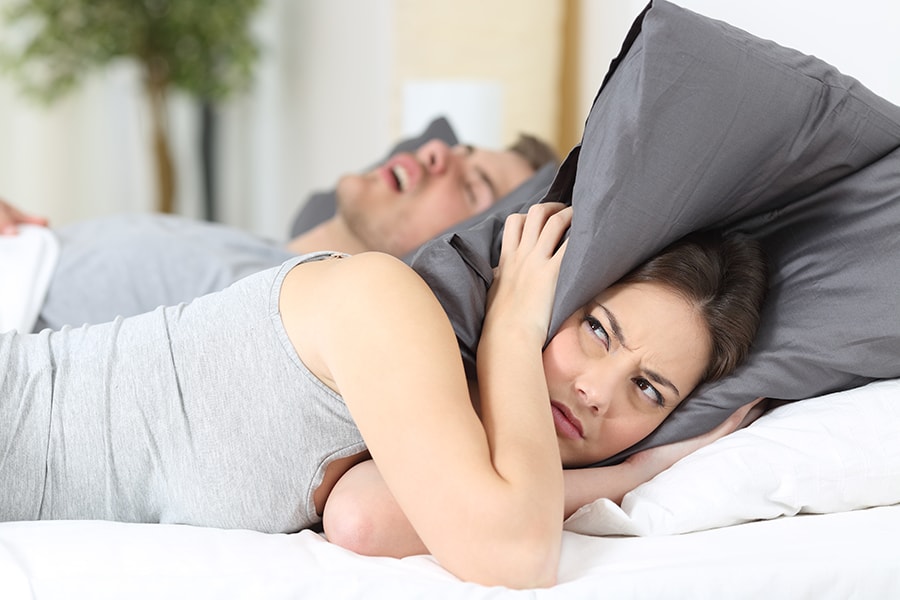Snoring can be one of the most disruptive sleep disorders to have since it also affects the other people in your household. You may also believe that you’re unable to control it since you think it’s something that you’re genetically predisposed to. However, you may have heard others mention that you can simply correct a snoring problem, and that the issue stems from your lifestyle. So, what exactly causes snoring? And what are the ways to fix it?
Through this article, we’ll delve deeper into what causes snoring, and what you can do to seek treatment for it.
Snoring Statistics: You Are Not Alone
Snoring is a common sleep disorder in the United States. According to studies, 57% of men and 40% of women snore, which means about half of all adults struggle with the disorder. Experts also agree there are varying degrees of snoring, from light to extreme, depending on the case.
Studies have also successfully identified what causes snoring, which can also help us settle the debate of whether it is a hereditary or lifestyle-based sleep disorder.
The Case for Snoring as a Hereditary Sleep Disorder
In order to identify hereditary as a cause for snoring, a physical examination is necessary. In particular, it’s important to examine the patient’s nose and mouth, and identify parts that are larger or smaller physical characteristics—which are arguably hereditary.
For example, a high, narrow-arched palate and larger uvula may trigger snoring. If this is the case, sleep specialists may recommend anti-snoring tools, such as mandibular advancement devices and tongue-retaining devices.
For severe cases, surgery could be an alternative solution. For instance, a patient may undergo uvulopalatopharyngoplasty, which is the process of reshaping the uvula and other parts of the mouth to prevent snoring.
In the event that snoring is caused by physical irregularities, the disorder is considered to be hereditary in origin, and successful treatment involves addressing these irregularities.
The Case for Snoring as a Lifestyle-Based Sleep Disorder
There is also a significant amount of information to support snoring being a lifestyle-based sleep disorder. Obstructive sleep apnea, or OSA, refers to the partial-to-complete closure of the upper airways during sleep. Lifestyle-based factors, such as obesity and alcohol consumption, can be possible triggers of OSA.
In this event, lifestyle changes can help treat snoring. For example, an obese individual who experiences frequent snoring could benefit by losing weight to reduce the excess weight in the throat that’s putting pressure on upper airways. It may also benefit patients to reduce or eliminate the consumption of alcohol.
If a patient’s snoring is triggered by these factors, snoring is considered a lifestyle-triggered sleep disorder.
The Verdict for Snoring? It Depends!
Through our examples, we can conclude that snoring can either be a hereditary or lifestyle-based sleep disorder. If you suffer from snoring, your first step should be to undergo examination, followed by professional treatment to correct this sleeping disorder. Doing so can ensure that you, and the others in your household, can enjoy more restful sleep.
Correct Sleep Disorders with Professional Sleep Specialists in Jacksonville, FL
If you struggle with snoring, consider consulting with our sleep specialists in Jacksonville, FL. At our fully-equipped sleep center, we can help you to fully understand the causes of your disorder and find viable ways to correct it. Talk to us today to understand how to get control of your snoring and enjoy healthier, more fulfilling rest.



